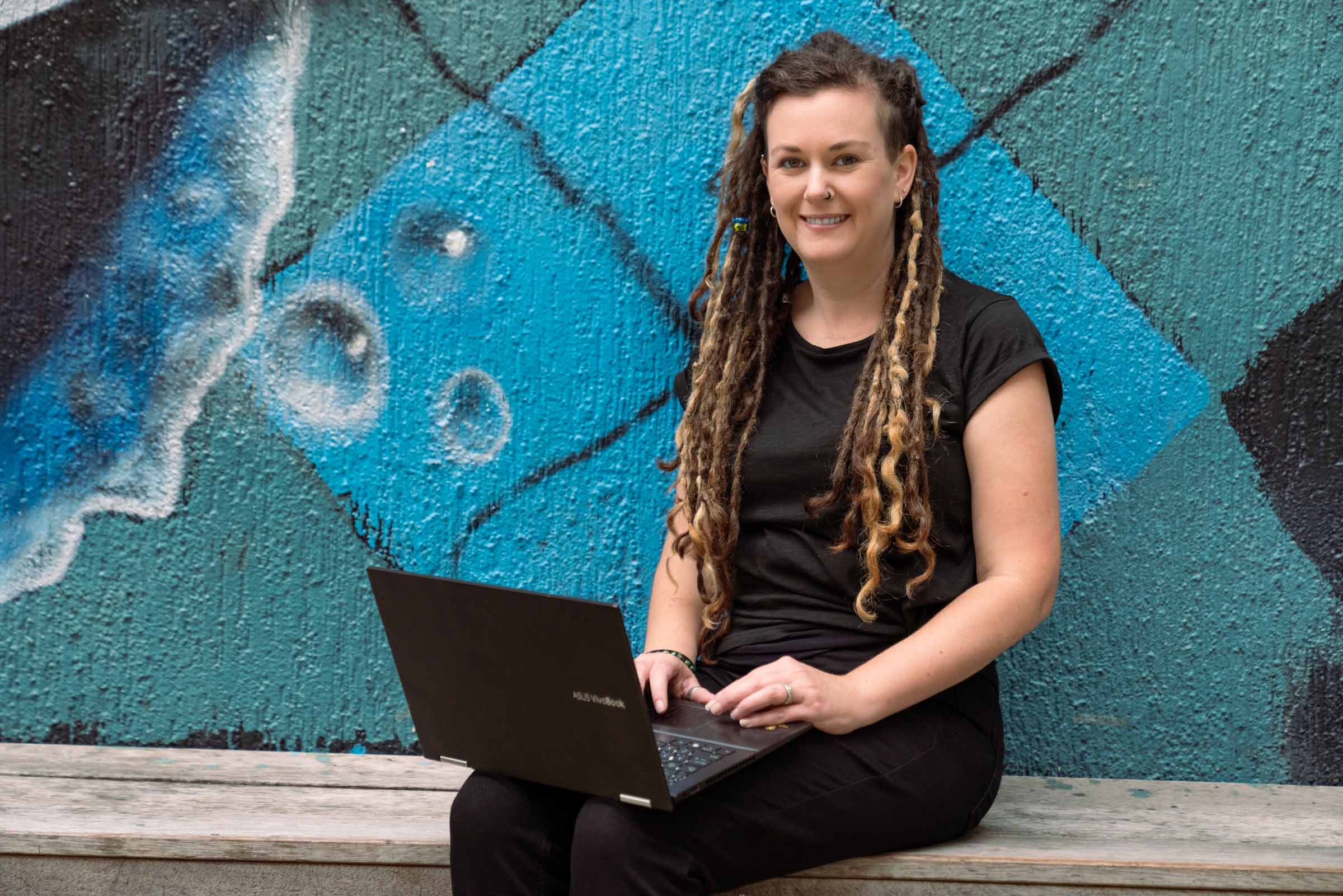
Empowering 21st-Century Kids with Coding and STEM Skills
In today’s rapidly evolving world, navigating technology is no longer just a valuable skill—it’s essential. Master of Special Education and Bachelor of Teaching/Fine Art alumna Megan Ward has dedicated her career to empowering young minds through coding and STEM. Drawing from her background in teaching and behaviour management, Megan highlights the profound, transformative impact that hands-on engagement with technology can have on students.
As someone deeply passionate about technology and education, the work we do at iCode School has been centred around one key mission: equipping kids with the essential technology skills needed to thrive in our fast-changing world in a fun and engaging way. The connection to coding and STEM (Science, Technology, Engineering, and Mathematics) creates an interesting pathway for all children and young people including, at risk youth, children and young people with additional needs. Every day, we see the potential that coding and STEM education unlock in young minds, and it fuels our drive to ensure that more children have access to these invaluable skills.
In the early stages of my teaching career, particularly in Visual Arts with a focus on behaviour management, I noticed a strong connection between disengaged youth and their use of technology. Many of these students, whether they were school refusers or simply disinterested, often spent hours absorbed in passive technology use like doom scrolling and with addictive games. Recognising this, we aimed to shift the narrative—to encourage these kids to engage actively with technology, rather than be passive consumers. This insight became a catalyst for the rapid growth of iCode School, where we help students harness the power of technology in meaningful ways.

I’ve always believed that coding as our core business is more than just a technical skill—it’s a new form of literacy. Teaching kids to code gives them the tools to break down complex problems, think logically, and create solutions in ways they never imagined. Coding isn't just about programming computers; it's about learning to think critically, solve real-world problems, and collaborate with others.
The most exciting part is seeing kids use coding to express their creativity. Whether they are developing games or solving real-world problems, coding empowers them to innovate, persist, and sharpen their problem-solving skills.
While not all may pursue careers as software engineers, the resilience, creativity, and critical thinking they gain will propel them forward in any path they choose. It’s about fostering curiosity, encouraging experimentation, and instilling a lifelong love of learning. With a solid foundation in STEM, they'll have the confidence to adapt, innovate, and lead in an ever-evolving world."
As kids become more proficient with technology, they’re navigating a complex digital world. Teaching online safety and ethics alongside coding and STEM skills is essential. The focus is on embedding online safety through open communication, ensuring kids feel secure online, understand password protection, navigate AI responsibly, and grasp the cause and effect of their digital actions. From privacy and cybersecurity to responsible social media use, today’s kids face challenges unlike any before. It’s our community’s responsibility to ensure they not only know how to use technology but also how to protect themselves and others, fostering responsible digital citizens who are both tech-savvy and ethical.
One of the most powerful aspects of coding education is its positive impact on kids’ mental wellbeing. Coding helps children develop focus, persistence, and resilience— skills that not only enhance their coding abilities but also help them manage everyday challenges. Through coding, kids learn to solve problems, face setbacks, and embrace trial, error and adversity. This process teaches them that failure is just a step toward success, building confidence and fostering a strong sense of accomplishment. We offer the tools, support, and encouragement to create a safe space where they can make mistakes, learn, and bounce back from challenges.
Looking ahead, we aim to help build a generation of learners who are not just tech consumers but creators, innovators, and free thinkers. More importantly, we want them to be resilient, ethical, and thoughtful in how they engage with the world. We understand the importance of shaping the next generation of leaders, problem-solvers, critical thinkers and change-makers. It's an exciting time in education, and the chance to prepare kids for a bright, tech-driven future is incredibly rewarding.
 | Megan Ward Educational and Behaviour Support Specialist Master of Special Education 2013 Bachelor of Teaching / Bachelor of Fine Art 2010 |
The University of Newcastle acknowledges the traditional custodians of the lands within our footprint areas: Awabakal, Darkinjung, Biripai, Worimi, Wonnarua, and Eora Nations. We also pay respect to the wisdom of our Elders past and present.